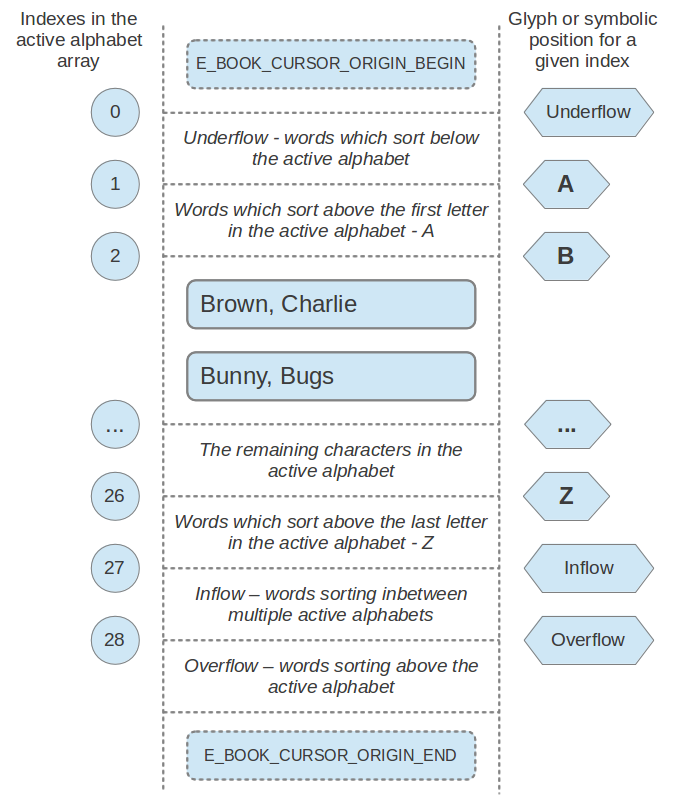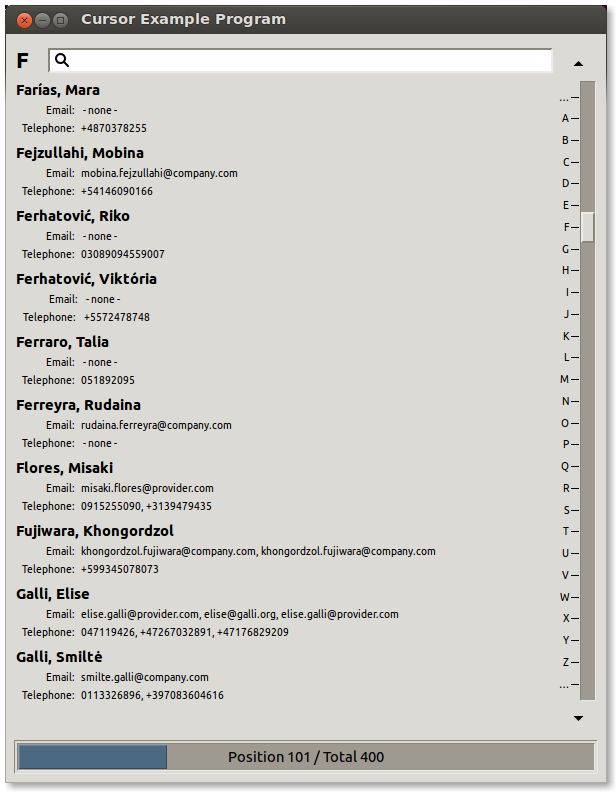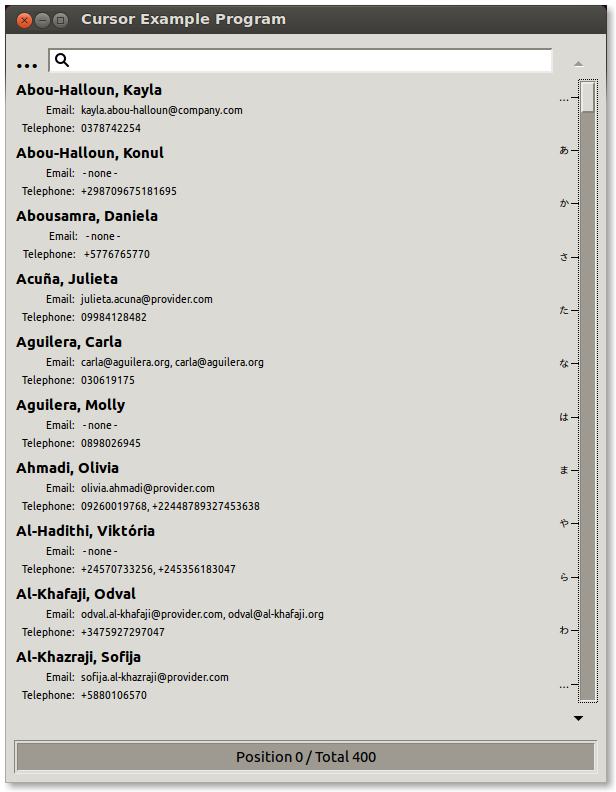Hi all, I’ve been short on blog posts this summer and realize, after the fact, that I’ve not blogged once about the cursor API we’ve been cooking up at Openismus this year.
I’d like to present to you an interesting and unique new feature which will be available in the GNOME platform for 3.12, the cursor API to iterate over contacts in Evolution Data Server which has recently landed in git master.
Of course, the ability to sort a list of contacts and iterate over them efficiently can not be unique. I do think we have a solid API, and we support cursors in direct read access (bypassing D-Bus) but I’d really like to highlight some of the new internationalization features this API brings with it, allowing one to easily implement rich locale awareness in contact browsing applications.
Rich locale sensitive sorting with ICU
The cursor iterates over contacts in the order specified by the cursor’s configuration, and does so using a locale sensitive sort.
The ICU libraries provide a much richer set of collation options than the standard glibc’s implementation of strcoll() and friends. For the contacts database, specific ICU collation rules are preferred in order to get the sort order most appropriate for an addressbook (we normally prefer ‘phonebook’ order as opposed to a ‘dictionary’, ‘phonetic’ or other flavours of sort order).
Dynamic locale changes
So your device / desktop has a locale setting ?
Want your device / app / desktop to transition seamlessly from one locale to another ?
This won’t be a problem for your contact browsing interface. EDS’s addressbook will update it’s locale automatically when it’s notified of a system locale change (via the org.freedesktop.locale1 interface), automatically sorting the contacts in the new sort order and updating the active alphabet (cursor positions are necessarily lost and reset at locale change time).
Alphabet Introspection
Contact browsers, for your hand phone or your email application, are fun to navigate when you can jump to a given letter, or have some feedback showing what letter in your alphabet which you are currently browsing.
But what happens when your application must be usable in English, Greek, Japanese and Arabic ?
The ICU libraries again come to the rescue, providing us with tools we can use to display and navigate through characters and positions which are valid in the user’s active alphabet / script.
The new cursor API leverages this feature to make locale sensitive alphabetic browsing easy.

Since ICU provides us with functionality to determine what text should sort under which alphabetic position in the active alphabet, we are able to generate a sort key which will sort in between characters in a given alphabet.
This allows us to solve the problem of navigating to the position ‘E’ in the alphabet reliably and in the right place, as one must have knowledge of which variation of the letter ‘E’ (upper or lower case variations of e, é, è, ë, ê, etc…) sorts lowest in the active locale.
Documentation and Examples
This time around I wrote an obscene amount of documentation and a fully functional alphabetically sorted example contact browser.
Please enjoy the pretty diagrams and code snippets while writing your locale aware contact browsing applications 🙂
Below is the example contact browser first in en_US and then in ja_JP, unfortunately I did not take the time to add contact data from many locales (so there are no Japanese names listed there, instead all of the names in Latin script sort below the active Japanese alphabet).


Patrick used your diagrams in a nice talk last week in Edinburgh!